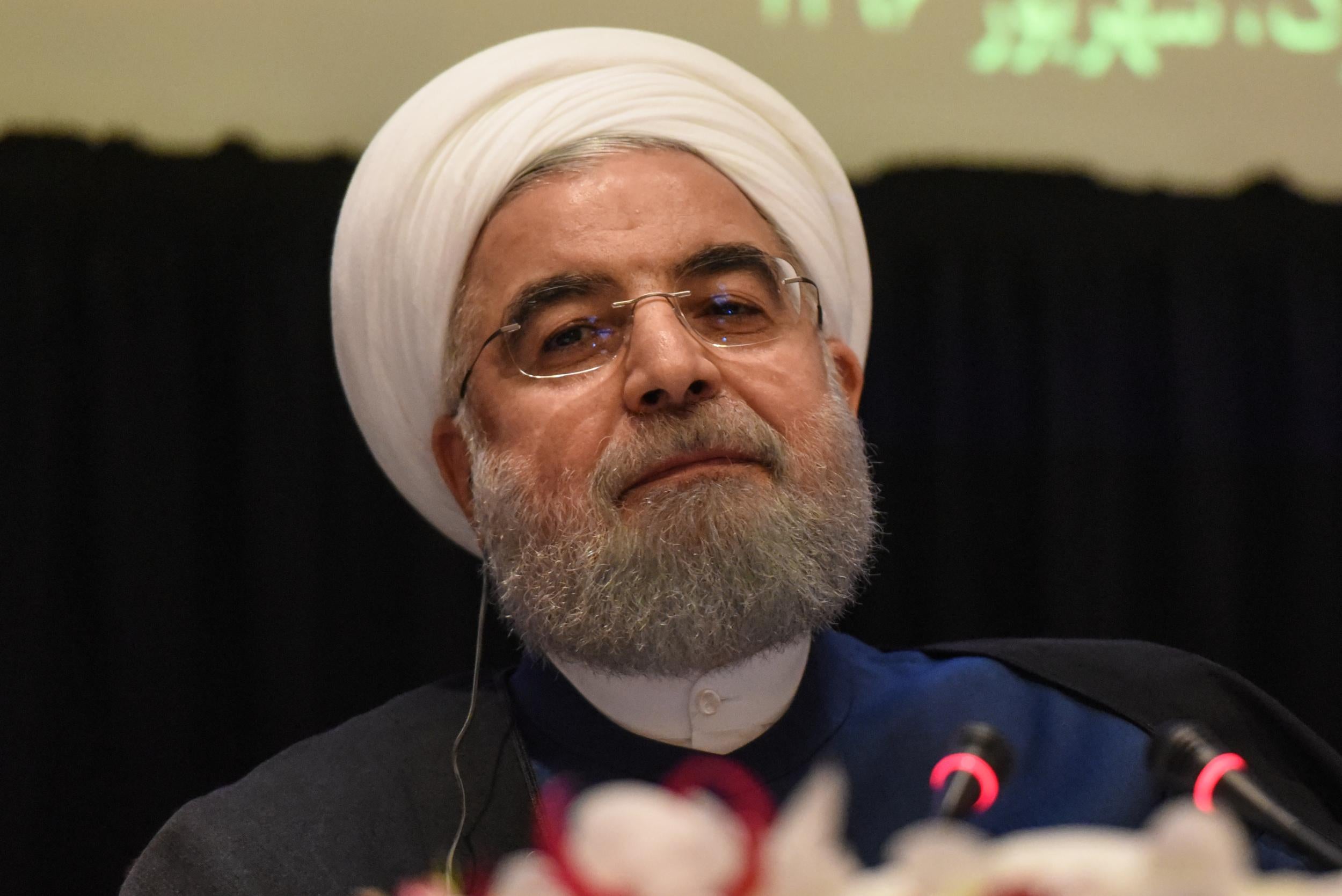Iran braces for Trump's announcement on fate of nuclear deal
Political rivals in Tehran unite in face of expected decision to scrap historic Obama era nuclear accord with world powers

Iranian officials are doing their best to present a brave and united front the day before US President Donald Trump announces whether he will pull out of the landmark 2015 nuclear deal which “made the world a safer place”.
While on the campaign trail Mr Trump promised to dismantle predecessor Barack Obama’s accord with Tehran and five world powers, which lifted the international sanctions which have crippled Iran’s economy in exchange for curbs on the country’s nuclear programme.
Since entering office in January, his administration has twice delayed a decision on whether Iran is complying with the terms of the deal.

However, the next certification compliance deadline is looming on 15 October - and the deal’s supporters are bracing themselves for a planned speech by the president on Thursday after fresh hints he intends to scrap it.
International Atomic Energy Agency (IAEA) experts agree that despite the testing of non-nuclear ballistic warheads in recent months, Iran is adhering to the terms of the deal.
If the White House declares Iran is “breaching the spirit of the agreement”, as expected, Congress will have 60 days to decide whether to slap Tehran with fresh sanctions - and the Republican-led house would be likely to vote to kill the deal.
On Wednesday Iranian news reported that foreign minister Mohammad Javad Zarif had briefed a closed session of parliament ahead of the US’ anticipated withdrawal from the nuclear deal, warning that Tehran will offer a “tougher response”.
President Hassan Rouhani has repeatedly said the deal cannot be annulled or renegotiated.
Also on Wednesday, he gave a rare speech in defence of his political rivals the hardline Revolutionary Guards, who are also under the threat of new sanctions from Mr Trump, as the country’s factions seek to unite in the threat of new US threats.
“[The US] think that the Guards are a military entity. The Revolutionary Guards are not a military entity. They're in the heart of the people. The Revolutionary Guards, in all the days of danger, have defended our national interests,” he said,
“We're one society. We're Iran. There are no differences between different factions in confronting the plots of our enemies,” he added.
Last week there were even signs of discord within the White House over the future of the nuclear accord after Defence Secretary Jim Mattis broke rank with the president in defence of it.
While Secretary Mattis has previously said he supports Mr Trump’s proposed review of the deal, he told a Senate hearing on 3 October he believed it is the US’s security interests to maintain it.
“If we can confirm that Iran is living by the agreement, if we can determine that this is in our best interest, then clearly we should stay with it,” he said.
”I believe… absent indications to the contrary, it is something that the president should consider staying with,” he added.
Observers worry the collapse of the deal could trigger a regional arms race, worsen Middle East tensions and discourage rogue states like North Korea from trusting Washington to keep its word.
In a rare case of public pressure on the US from the UK, Foreign Secretary Boris Johnson called his US counterpart Rex Tillerson on Wednesday to underscore the British government’s support for the deal.
Mr Trump’s administration is yet to lay out a broader Iran policy.
Join our commenting forum
Join thought-provoking conversations, follow other Independent readers and see their replies
Comments
Bookmark popover
Removed from bookmarks